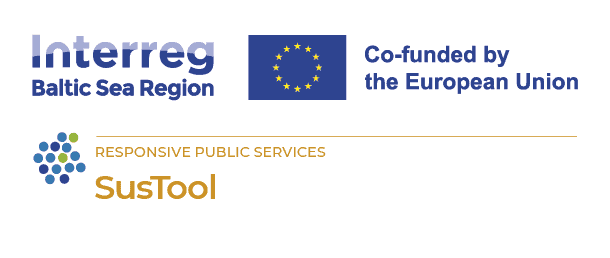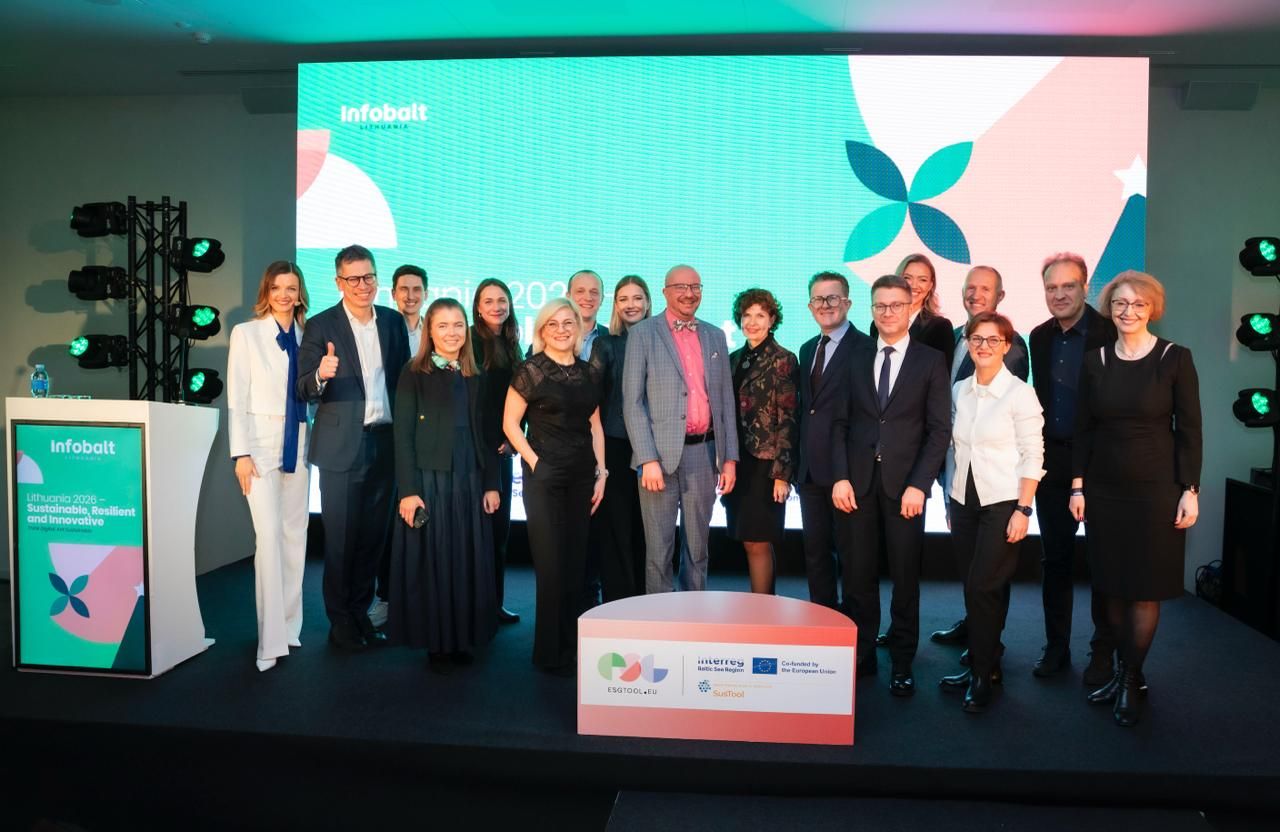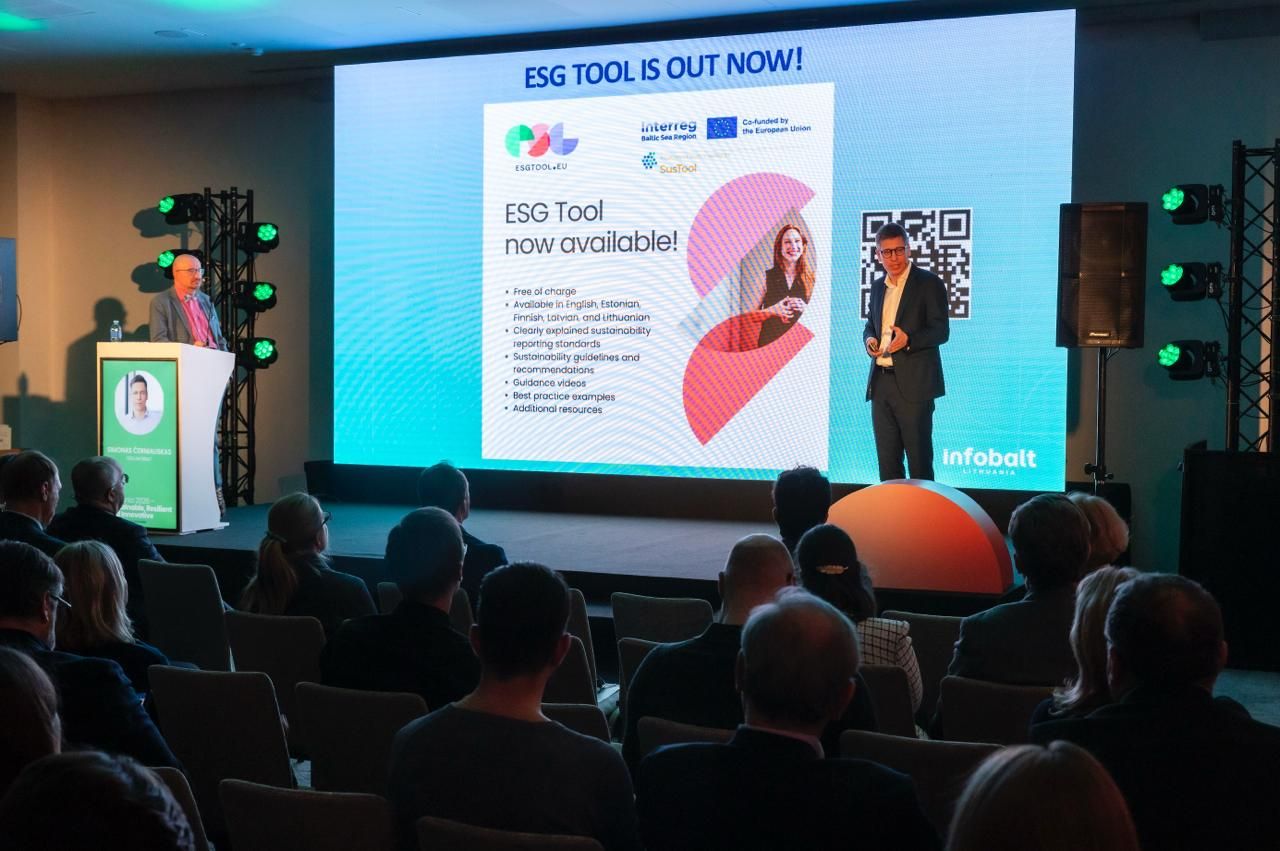
Discussion on the future of the “ESG Tool” and the impact of technology on sustainability transformation
28 November 2025
Environmental, Social, and Governance (ESG) assessment tools are becoming increasingly important for both the public and private sectors, helping organizations consistently evaluate their impact and make data-driven decisions. To foster greater standardization and cross-border cooperation, the ESG Tool was created as an open, multilingual instrument that helps companies more easily apply sustainability principles, understand their impact, and prepare for sustainability reporting.
On 25 November 2025, INFOBALT organized a SusTool project roundtable discussion – part of the Interreg Baltic Sea Region programme. The event was held as a segment of a broader sustainability and technology conference, bringing together policymakers, technology developers, and business representatives to discuss how digital tools can accelerate sustainability transformation, enhance competitiveness, and increase resilience to changing regulatory and environmental challenges.
The ESG Tool itself was presented and discussed during the event. It is a regional instrument designed to help companies prepare for sustainability reporting.
Adrijus Jusas, Director of the Centre of Registers, noted: “Digital transformation in the field of sustainability is inevitable. Companies need tools that not only simplify ESG data collection but also allow them to clearly track their progress. The ESG Tool provides exactly that – a standardized and reliable way to assess performance, compare results, and make better decisions.”
The ESG Tool is considered one of the solutions that can reduce administrative burdens, improve data quality, and harmonize ESG assessment methodologies across different countries. It is expected that its development will become a shared priority for Lithuania, Latvia, Estonia, and other regional partners.
During the “Lithuania 2026 – Sustainable, Resilient and Innovative. Think Digital. Act Sustainable” event in Vilnius, policymakers, business leaders, and technology experts discussed how the data economy, artificial intelligence, autonomous systems, and digital registries are transforming sustainability practices.
INFOBALT Director Simonas Černiauskas emphasized: “Companies that rely on data can identify risks faster, use resources more efficiently, and more easily comply with regulatory requirements. The ESG Tool is becoming one of those solutions that genuinely helps businesses assess themselves and transition toward a more transparent and sustainable business model. I am glad that the ICT business community — our members — successfully tested it, and we can now present it to all Lithuanian companies.”
The technology sector is facing increasingly ambitious requirements concerning energy consumption, data management, and ethics. Therefore, discussions increasingly focus not only on the potential of technology but also on responsible implementation that ensures real benefits for environmental, social, and organizational sustainability goals.
The event was attended by Lithuania’s Vice Minister of the Economy and Innovation for Digitalization Darius Zailskas, Speaker of the Seimas Juozas Olekas, representatives of the Estonian Ministry of Economic Affairs and Communications, Lithuania’s Ministry of Finance, the Centre of Registers, the Green Finance Institute, ILTE, the Investors’ Forum, universities, Lithuanian and international companies, and many other stakeholders in the technology and sustainability ecosystem.
Later sessions featured presentations on digital transformation processes, the potential of the data economy, and the role of innovation in building resilient organizations. Discussions also covered responsibility in implementing digital innovations and their potential impact on companies’ sustainability outcomes. The final plenary session emphasized the regional perspective and explored solutions that could help the Baltic Sea Region achieve its 2030 sustainability ambitions.











